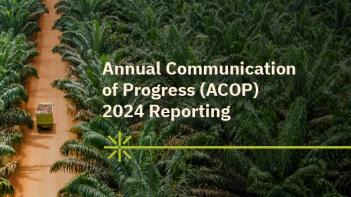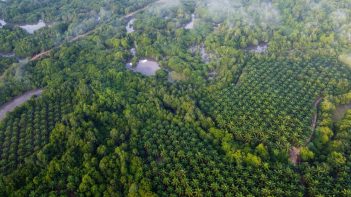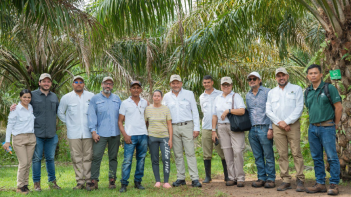On 8 July 2021, the revised RSPO Greenhouse Gas (GHG) Assessment Procedure was endorsed by the RSPO Standard Standing Committee. Version 4 of this procedure is effective immediately with a six (6) month grace period. All NPP submissions from 1 March 2022 shall follow the procedure outlined in the GHG assessment Procedure v4.
Key Changes to the document
The document has been aligned with the requirements of the RSPO Principles & Criteria (P&C) 2018 and New Planting Procedure (NPP) 2021. Specifically, revisions have been done in Section 3: Carbon stock assessment, to cover the new requirements introduced by indicator 7.7.1, 7.7.2 and 7.12.2b of the P&C 2018, which are:
- Identification and conservation of peat soils following the ‘RSPO Generic organic and peat soil definition’ (or national definitions following the NI process). (Indicator 7.7.1 & &.7.7.2)
- Classification of land cover and their respective carbon stock values of above ground biomass (AGB) is drawn from findings of standalone HCSA/integrated HCV-HCSA assessment. Calculation of below ground biomass (BGB) and soil carbon (for peat) remain unchanged. (Indicator 7.12.2b)
- Added guidance throughout the document on the specific sections within standalone HCSA/integrated HCV-HCSA assessment reports where RSPO members can extract relevant information for the purpose of the RSPO GHG assessment procedure.
- Update of maps, diagrams, and tables within the main procedure and examples within the document.
No changes have been made to the calculation of GHG emissions as required in Section 4: Assessment of GHG emissions for new development of the document.
The English version of the document is available for download in the link below. Translated versions (Bahasa Indonesia, French, Spanish) are currently in the process of translation and shall be available once completed.
For further information and/or clarification, please contact [email protected].
Related documents:
Keep reading
Carry Over Credits for Certified Independent Smallholders Group

Latin American Smallholders and Global Brands met in the Peruvian Amazon to Advance Sustainable Palm Oil

From the Amazon to the Aisles: Discovering Sustainable Palm Oil in the Heart of Peru

Global Trends of Sustainable Palm Oil and China's Pathway

Final list of ACOP 2024 Non Submitters

New ISEAL Case Study Identifies Pathways to EUDR Compliance in Palm Oil Sector
Call for Expression of Interest: Nigeria National Interpretation Task Force for 2024 RSPO Principles and Criteria (RSPO P&C) and Independent Smallholder (ISH) Standard

From Cocaine Processing to Cultivating Palm Oil: Resilience takes root in a Colombian community




